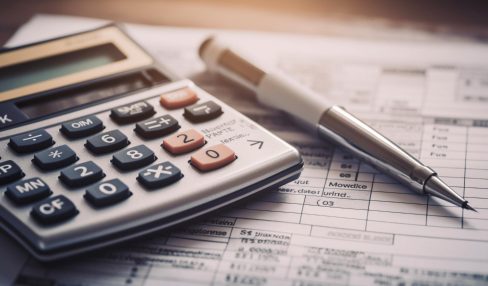Next-Gen Property Valuation: Latest Tools and Techniques You Should Know About
4 Mins Read
Published on: 04 November 2023
Last Updated on: 06 September 2024

toc impalement
Property valuation refers to the process of determining the fair market value of a real estate property. One day, they’re soaring sky-high; the next, they’re as unpredictable as the weather.
And what’s the reason behind it?
Well, there are several reasons to have a fair and accurate property valuation. It is important for things like finance, insurance, taxation, and court cases.
In addition to assisting buyers and sellers in deciding a fair price during purchase or sale talks, it also acts as a foundation for property tax computations and guards against fraud by ensuring that properties are not purposefully overrated or undervalued.
So, buckle up as we take you through the latest and greatest property valuation. This guide will help you learn how to value homes in the modern world, whether you’re a homeowner, an investor, or just someone interested in the subject.
What’s Changing In Property Valuation?
The real estate market is a unique and complex entity. It is constantly evolving with economic trends and technological advancements.
The industry is quickly moving toward more accurate, dependable, and technologically advanced appraisal techniques to control this wave.
Let’s dive into some of these groundbreaking tools reshaping how you see value in bricks and mortar.
Automated Valuation Models (AVMs)
AVMs are the ninjas of property valuation. With a few keystrokes, these powerful models analyze data from various sources. This includes public property records, recent sales, price trends, and more to estimate a property’s value in seconds.
They are cost-effective, lightning-fast, and increasingly accurate as more data feeds their algorithms.
Geographic Information Systems (GIS)
Imagine a map that tells you more than just directions. GIS does exactly that but for property values. It integrates software and hardware to capture, manage, analyze, and display all forms of geographically referenced information.
This means you can see how a property’s location influences its value, factoring in elements like school districts, flood zones, and even noise levels.
The Role Of Big Data
The utilization of big data in property appraisal might be likened to the investigative prowess of Sherlock Holmes. It delves deep into massive datasets, uncovering patterns and insights that were previously unnoticeable.
By analyzing big data, experts can predict market trends and provide a more subtle valuation that reflects real-time market conditions.
Adapting To Innovation In Valuation
The real estate industry is increasingly turning towards digital advancements, and with this shift, Desktop Appraisal has emerged as a key player. This modern valuation method allows for an accurate assessment of property values through digital means.
It uses robust computer applications and extensive virtual data, thus eliminating the need for on-site visits. Revolutionizing the appraisal process, SVI’s Appraisal Desktop with Inspection (ADI) exemplifies this innovation.
Not limited to this, there are many other ways through which the property valuation is being carried out.
Virtual Tours And Drone Photography
Virtual reality isn’t just for gamers anymore; it’s a real estate maverick, too. Drone photography and virtual tours provide detailed property views that help in assessing value.
These tools ensure that even without setting foot on a property, valuers can conduct thorough assessments remotely, saving time and resources.
Machine Learning And AI
Artificial Intelligence (AI) and Machine Learning (ML) are not just buzzwords. They are the smart assistants of the valuation world.
These technologies continually learn from new data, leading to increasingly sophisticated valuation models that can adapt to the intricacies of different markets.
Blockchain In Real Estate
Blockchain might be known for cryptocurrencies, but it’s also making waves in real estate. By providing a secure, transparent ledger for transactions, it ensures the integrity of the data used in property valuation, thereby increasing trust and reducing fraud.
Why Should You Care?
Now, you might be thinking, “This is all great, but why does it matter to me?” Here’s why: Whether you’re buying, selling, or simply holding onto a property, these tools can make a massive difference in evaluating your investment.
Better valuation methods lead to more informed decisions, potentially saving you from the pitfalls of over- or undervaluing a property.
Navigating The Risks
Of course, with all technology, there are risks. Reliance on digital tools requires a level of trust in the data’s accuracy and the algorithms’ fairness.
It’s important to use these tools as part of a broader strategy, combining their insights with human expertise and local market knowledge.
Closing Thoughts
So, this is it! The property valuation landscape is evolving at a great speed. There are various potential tools that you can use to simplify your job. These tools aren’t limited to tech-savvy people. Rather, they are becoming the standard in the industry. And the main reason is that they offer transparency, speed, and precision. With this knowledge, the power to unlock true property value is at your fingertips.
Read Also:


















Comments Are Closed For This Article